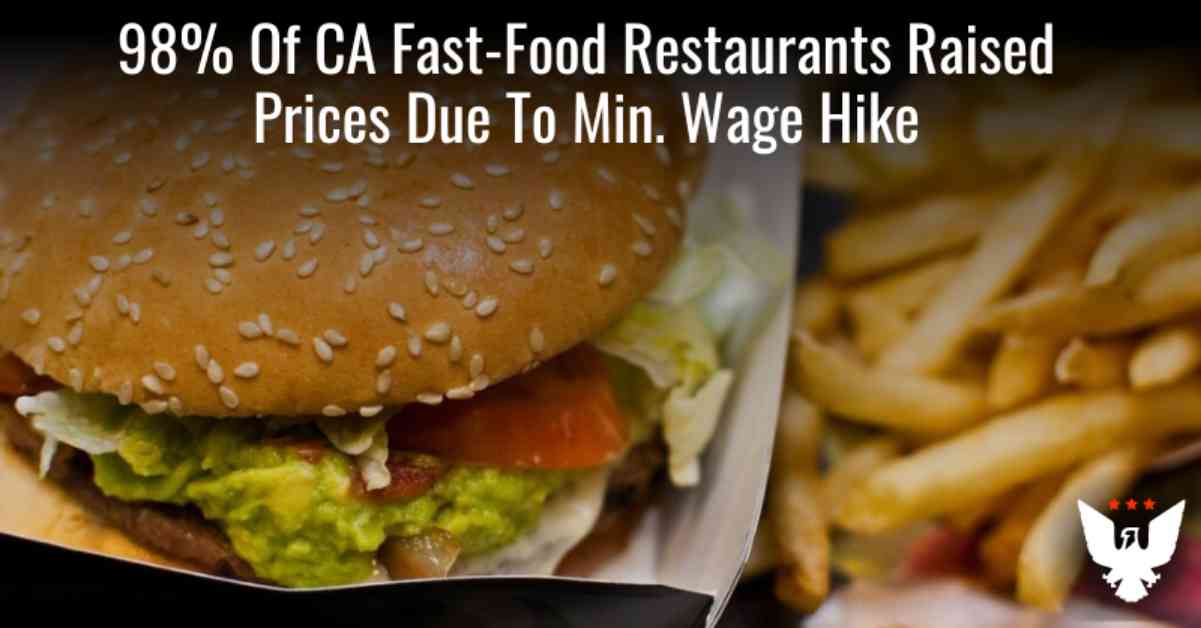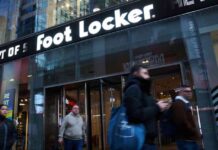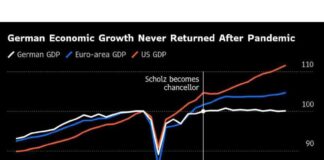Impact of Minimum Wage Increase on Pricing Strategies in California Fast-Food Restaurants
A recent journey to southern California not only evoked nostalgia for this writer but also brought about a surprising realization of the soaring prices in fast-food establishments. The expenses incurred during this trip include $10.71 for a McDonald’s McMuffin meal, $15.93 for a steak burrito at Baja Fresh, and $26.44 for a kebab plate and baklava from a local Middle Eastern chain. These exorbitant prices are a direct consequence of California’s decision to implement a $20 minimum wage for workers in fast-food restaurants. While the intention may have been to uplift the living standards of employees, the unintended consequence has been felt by consumers who are now bearing the brunt of these increased costs.
Employers in the fast-food industry are grappling with the repercussions of this mandate, with many being forced to make tough decisions to stay afloat. A survey conducted by the Employment Policies Institute revealed that two-thirds of limited-service restaurants believe the new mandate will cost at least $100,000 per establishment, with over a quarter estimating costs of $200,000 or more. In response to these financial pressures, nearly all restaurant owners surveyed admitted to raising prices. Additionally, close to 90% said they had reduced employee hours, with a majority also cutting back on overtime and streamlining their workforce by merging positions. The impact of the higher minimum wage is palpable, with owners foreseeing a reduction in employee counts and a significant increase in menu prices. They also expressed concerns about the adverse effects on customer foot traffic and their ability to expand within California.
The real-world implications of the minimum wage increase are evident in the stories shared by business owners like Lawrence Cheng, who had to downsize his workforce at a Wendy’s location in Orange County due to the spike in labor costs. Cheng’s experience is mirrored by other franchisees who have had to make tough decisions to adjust to the new wage requirements. Despite efforts to mitigate the impact by raising menu prices, many businesses are still struggling to stay afloat and are being forced to make cuts in various areas to survive. The ripple effects of these changes are being felt not only by employees who are losing hours but also by consumers who are faced with higher prices for their favorite fast-food meals.
As California grapples with the aftermath of the minimum wage increase, the debate over its effectiveness rages on. While proponents argue that it is a step towards achieving fair wages for workers, critics point to the detrimental effects on businesses and the economy at large. Governor Gavin Newsom has defended the wage hike as a necessary measure to uplift workers, but the reality on the ground tells a different story. The Employment Policies Institute survey paints a stark picture of the challenges faced by fast-food establishments in adapting to the new wage mandate, with many owners expressing concerns about the viability of their businesses in the face of rising costs.
The Economic Impact of Minimum Wage Increases
The economic impact of minimum wage increases is a topic of great debate among economists and policymakers. Proponents argue that raising the minimum wage can help reduce income inequality and lift workers out of poverty. However, critics warn that sudden and significant wage hikes can have unintended consequences, such as job losses, reduced hours, and increased prices for consumers. The case of California’s fast-food restaurants provides a real-world example of how businesses are responding to the minimum wage increase and the challenges they face in maintaining profitability.
Challenges Faced by Fast-Food Restaurants
Fast-food restaurants in California are at the forefront of the minimum wage debate, as they are among the businesses most affected by the wage increase. The survey conducted by the Employment Policies Institute sheds light on the struggles faced by these establishments in adapting to the new wage mandate. Owners are grappling with the dilemma of balancing the need to pay their employees a fair wage with the financial realities of running a business in a competitive market. The decision to raise menu prices, reduce hours, and streamline operations is not taken lightly, as it can have far-reaching implications for both employees and consumers.
The stories of business owners like Lawrence Cheng and the Jersey Mike’s franchisee highlight the difficult choices that must be made in response to the minimum wage increase. Despite their best efforts to mitigate the impact through price adjustments and cost-cutting measures, many owners are finding it increasingly challenging to sustain their businesses under the new wage requirements. The long-term implications of these changes remain uncertain, as businesses navigate the changing landscape of the fast-food industry in California.
In conclusion, the minimum wage increase in California has had a profound impact on the pricing strategies of fast-food restaurants in the state. While the intention may have been to uplift workers and reduce income inequality, the unintended consequences are being felt by businesses and consumers alike. As the debate over the effectiveness of minimum wage increases continues, it is clear that finding a balance between fair wages for workers and sustainable business practices is essential for the long-term success of the fast-food industry in California.






















